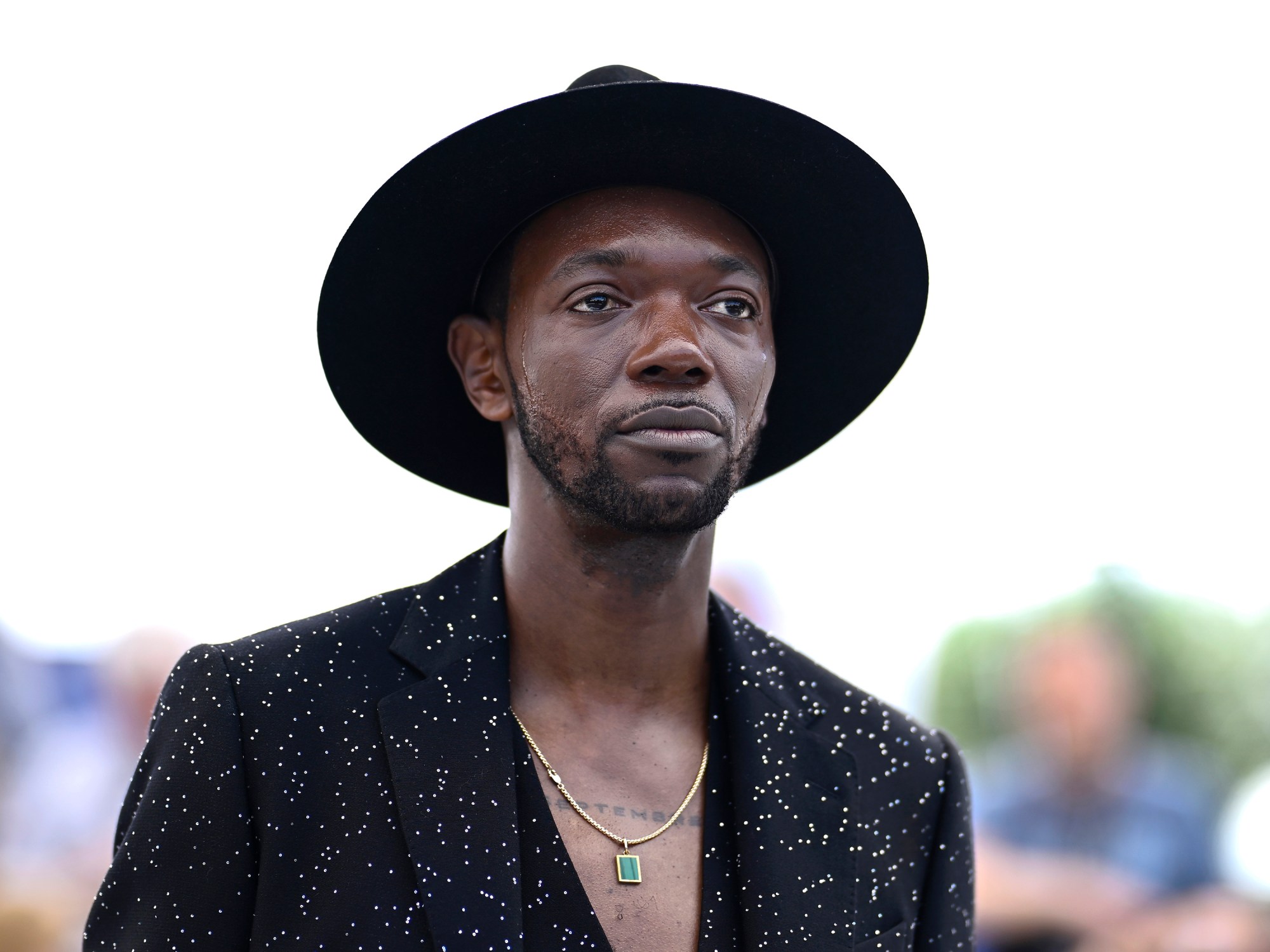
- Interviews
Baloji’s Directorial Debut “Omen” Premieres at the Cannes Film Festival
The Belgian-Congolese rapper and visual artist Baloji held the world premiere of his feature debut Omen at the 76th edition of the Cannes Film Festival.
Omen, which is in competition in Un Certain Regard, centers around a rejected Congolese man named Koffi (Marc Zinga). He returns to the Democratic Republic of Congo with his pregnant European fiancée Alice (Lucie Debay) after a lengthy exile to share their happy news, only to be faced by the traditional demands of a family who still view him with disregard. The interview with Baloji was conducted via Zoom during the Cannes Film Festival.
Your film is most certainly unique not only in its storytelling but also cinematographically. It reveals many poetic, vibrant images. Can you walk us through your creative process?
I almost did everything myself. I used a lot of synesthesia, associating sounds, image and colors to give the movie a colorful aspect. I also love framing the images. A lot of time was spent on preparing the movie structurally. I worked closely with the cast so that we were really ready when we started shooting, as we had only time for three to, maximum, five takes per scene. I was operating in a multidisciplinary art form. Meaning, I worked on the costumes and controlled the music as well. I focused to create a soundtrack from each character’s point of view, which were all unique contributing pieces of the creative puzzle. I had a lot of fun and completed this movie for the love of arts. When we started this project we were completely broke.
How much are you personally connected to the Congolese rituals, the idea of consulting a sorcerer, other popular beliefs?
My connection to the Congo runs very deep. My real name is Baloji, which in the Swahili and Chiluba languages means “a group of sorcerers”. It’s quite an unusual name to live with. You could compare it like living in Europe and being born with the name Devil or Demon, which is very negative. So, in my home country I’m confronted very often by the social assignment of my name, as many people believe my name to be connected to bad energy. Therefore, in the film I choose to not only have male characters who’d be considered as sorcerers but, also, female characters. For example, Charla, the 30-plus young sister who doesn’t want to have kids, gets called out by the entire society as a witch. Another example you get to witness is the mother who loses everything she owned after her husband dies. In the patriarchal structure in our country, everything belongs to the man only. As a woman, the mother no longer belongs to this place. I wanted to show these different points of view and highlight them throughout the film.
Do you have certain beliefs or gut feelings that you live by?
Yes, I do, I most certainly do. I really believe that my key strength throughout my work – and while making this movie – was my intuition. Following my intuition on every single thing was the core to creating this film. It was my motto to always follow my intuition, to trust my gut. If a certain scene did not feel good or I felt a dialogue wasn’t flowing, I’d honor that feeling and changed it rather than denying that instinct only to feel bad afterwards. I really learned to lean on this strength and work with it.
How does it feel to have your feature debut immediately get its world premiere at the prestigious Cannes Film Festival?
Obviously, I’m very excited. Perhaps it will sound very strange but I will just enjoy being at the festival. Will have little expectations. I am just extremely happy to have been selected. The nomination, on its own, is a real victory. This movie was made with such a small budget and was shot only in 23 days in the DRC. To receive such acknowledgment is incredible.

